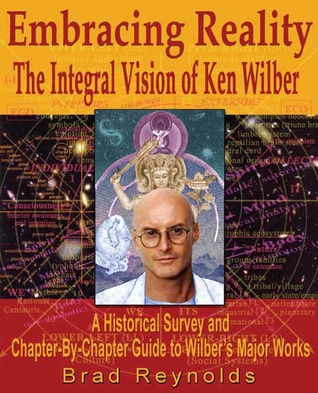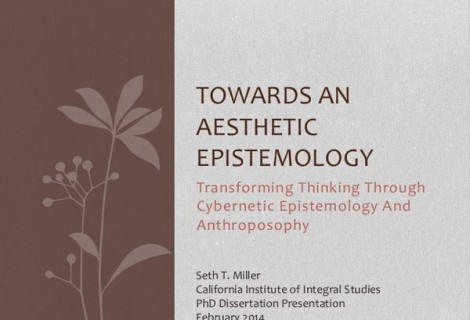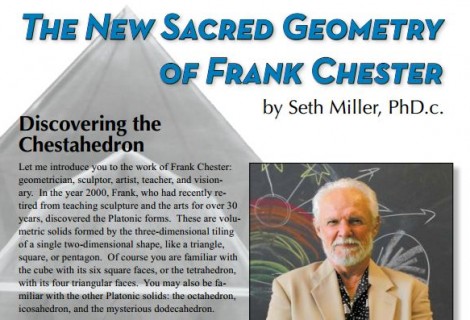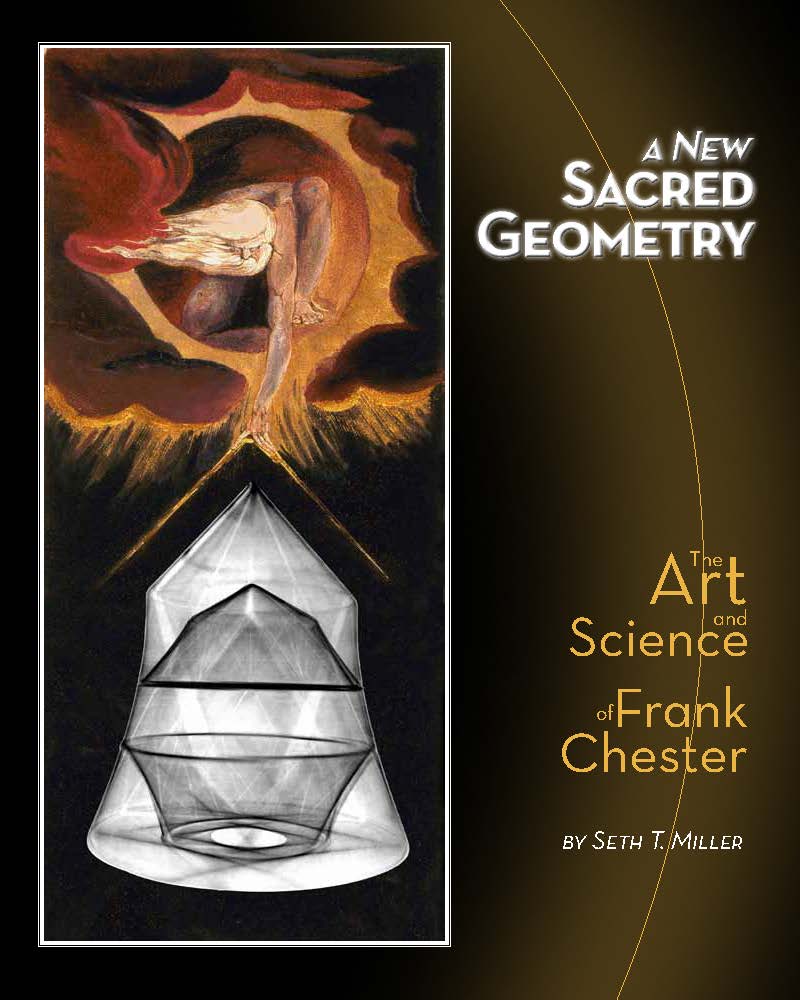Response to Ken Wilber and “Embracing Reality” by Brad Reynolds – A Critical Perspective

Embracing Reality offers two things, something of a semi-biographical contextualization of the development of Wilber’s thoughts and writings, and a series of more-or-less detailed summaries of those same works. For anyone who is not familiar with the different phases of Wilber’s thought, this is a nice reference work, and was most edifying for its picture of the development of Wilber’s thinking. I appreciated the detailed descriptions of some of his personal influences and struggles, but I couldn’t quite get over a kind of sticky feeling about the author’s undisguised near-worship of the man. It felt like the whole book was kind of an apology for Wilber’s work. There’s nothing wrong with this, of course, (particularly if the author presents it in this way, which isn’t the case here) but it doesn’t give me the feeling that I’m getting a balanced perspective on his work, as there is little to no criticism of him or his ideas in the whole book.
To help remedy this, if anyone is interested, here is a lengthy and equally unbalanced criticism of Wilber’s work by a very outspoken critic of his work, available as a free PDF download at http://www.normaneinsteinbook.com/ . These two offerings certainly don’t add up to a balanced perspective, but at least it fleshes out the field a little, and gives an idea of the kind of interactions that Wilber seems to spark, for any who wish to get involved in such a thing. Honestly for me, having skimmed and read about 2/3 of the Norman Einstein book, I’m both grateful for an alternate perspective and frustrated by the seeming lack of ability for coherent critical dialogue to take place between Ken Wilber and his critics.
On the one hand, and this characterizes what seems to be a pattern in general, I find acrimonious and personal criticisms between Ken and critics that is full of what strikes me very clearly as quite non-enlightened and non-integral type of communication from both sides. On the other hand it seems there are some criticisms that are simply ignored for whatever reason.
In any case, when I really try to get a sense for the gestalt of both Wilber and the communities that he inspires (both as ‘followers’, critics, and others), I am met with quite a variety of perceptions and feelings that it is hard to integrate into a coherent vision.
A few things stand out, however (all of these I completely accept as my personal experiences, which obviously reveal as much or more about me as they do of Wilber):
1) Wilber is unabashedly intellectual. Not a bad thing, by any means, in and of itself, but I actually mean this in part as a criticism. Something happens when one’s intellectual ideas move beyond themselves, and flow out naturally into the rest of the natural aspects of a human life: the feelings and the will. Try as I might, I have yet to find much evidence that satisfies my purely personal sense that this is the case for Wilber; I experience him much more as an enlarged head sitting atop a less developed torso and even less developed limbs, with some kind of blockage at his neck which both grants him great capacity for intellectual speech while stifling its ability to be infused with a balanced and integrative flow of feelings and a truly holistic basis in action. His actual physical visage reinforces this sensation, with his bald head, thick neck, prominent brows and thin lips, along with a physically well-developed lower body. Rudolf Steiner, whom I hold in the highest regard, mentions something very apropos to this point about the dynamic interrelationship between different aspects of the human being undergoing esoteric development, (from his book How to Know Higher Worlds, available free at http://wn.rsarchive.org/Books/GA010/English/GA010_c01.html):
“In all spiritual science there is a fundamental principle which cannot be transgressed without sacrificing success, and it should be impressed on the student in every form of esoteric training. It runs as follows: All knowledge pursued merely for the enrichment of personal learning and the accumulation of personal treasure leads you away from the path; but all knowledge pursued for growth to ripeness within the process of human ennoblement and cosmic development brings you a step forward. This law must be strictly observed, and no student is genuine until he has adopted it as a guide for his whole life. This truth can be expressed in the following short sentence: Every idea which does not become your ideal slays a force in your soul; every idea which becomes your ideal creates within you life-forces.“
I get the sense from Embracing Reality, which describes Wilber’s voracious appetite for intellectual works, as potentially problematic in leading to an overdevelopment of intellectual forces at the expense of a more coherent and balanced progression of all aspects of the human being. Of course, all this is meant in full awareness that the content of Wilber’s intellectual works (to some extent ironically, I feel) describe a somewhat similar perspective to the one Steiner mentions above.
2) Wilber seems to have a very large number of ‘followers’, many of whom emulate Wilber’s style and mannerisms, physically as well as in speech and patterns of thought. Emulation, as I understand it, does not fit very well into a path of esoteric development except in a very strict devotional type situation (which is increasingly rare, requiring the relinquishment of one’s ego in totality to a teacher, and which — I would argue — does not at all describe the vast majority of not all of Wilber’s followers, who tend to (with much variation) have very strong personal egos).
3) Perhaps because of this element of ego-enhancement (again, recognizing this as a personal judgment, on the basis of my interactions with a variety of people who to a greater or lesser extent embodied this characteristic, as well as through the admittedly not terribly comprehensive research regarding Wilber that I have done in my master’s program at JFKU and PhD program at CIIS (in both places there is no shortage of Wilber fans)), Wilber makes himself available to, and even incites quite strongly, polarization and criticism from a number of fronts, with equally staunch ‘defenders’. In the midst of the ensuing debates, because of the tendency for an increased need for interdifferentiation and the drawing of intellectual lines in the sand on behalf of both ‘sides’ (which will just get blown away by the first strong wind anyway), the pattern seems to be one that easily slides into confrontation, even actually inviting such. My sense is that some not insignificant portion of Ken’s ideas stem from the ongoing development of these types of confrontations, i.e. I get the feeling that definite portion of his thinking arises out of the smoldering ashes of a combative, polarizing milieu. I am, obviously, suggesting that the way in which a thought content comes to be represented in a human soul is not capable of being separated from the content itself. The process of the thinking that produced the thought has consequences for the thought itself. One could even, perhaps, speak of karma here, in the sense of actions which have lasting effects both in the world and for oneself.
4) I deeply admire Wilber’s principle that every system and perspective is “true but partial”. But this, in the context of the above criticisms, seems to lead him into a difficult situation (because true integration is generally born through suffering, it seems) where, lacking (I am open to discovering otherwise as I continue engaging with his work) a very… hygienic interdevelopment of the whole personality along with its capacities, he seems forced to rely upon the basis from which is strengths have flowed. For Wilber, this again lies squarely in the intellectual domain. It seems that the major path forward is one of continuous distinction and differentiation between and among concepts from the widest possible sources — but it keeps the flavor of distinction that remains powerful primarily in the conceptual realm due to the (relative) absence of a comprehensive integration of the feeling and the willing aspects with the intellectual.
These are difficult things to speak of, and who am I to make such sweeping judgments? I can only say that I am open to discovering otherwise, and that I feel that I am able to make this kind of criticism in part because Wilber is explicitly speaking about precisely the types of issues I am raising here (in Wilber-speak this would refer to lines, levels, states, stages, transcend/include, quadrants, etc.). As a willingly public figure who addresses the breadth and depth of material that Wilber does, and on the basis of the strength of various claims he makes (particularly in the realm of esoteric development), he expressly places himself in a position of inviting discussion of the extent to which he has directly and actually embodied the very principles he is espousing.
Reynolds takes some pains to provide what I consider to be a weak response to this criticism, which he brings up as variations on a single theme, (paraphrased): ‘Ken has meditated for x number of years and thus isn’t merely thinking about these things; he has experienced them directly’, i.e. his oft-cited satori event, his living in the continuous awareness of the non-dual, etc. I do not doubt the sincerity of his practice, or even (okay, I actually do have some doubts here, I’ll admit) his personal claims concerning his enlightenment experiences. However, this simply has no necessary bearing on the content of Wilber’s ideas. The question is whether or not, when the ideas were formed, and when they were written down, was the activity present in Wilber’s being one that was permeated through and through with the quality of the enlightenment experiences which are supposed to form the ‘practical’ foundations for his intellectual claims? The moral strength, in addition to the actual professed content that provides the bedrock out of which his thinking flows, changes dramatically as a result of the answer to this question.
My experience of concepts which flow dynamically from a human being who is in the midst of direct experience of the more subtle, spiritual worlds, is that their content serves the activity of their realization. That is to say, enlightened words about enlightenment serve to enlighten. I would even venture to say that with regards in particular to esoteric concepts, how the concepts come into being, and how they are communicated speaks more directly to their truth than their explicit content, which is the least important part of the whole interaction, taken from a spiritual perspective. Spiritually, the actual form of the words, and the concept itself, exists in us as a corpse of the living activity of the thinking that produced them. The very job of some paths of esoteric development is precisely to learn how to re-enliven these dead, outer concepts into concepts with awaken within is in a way that is directly imbued with the same spiritual source out of which the oringinal concepts were born. It is upon this basis that it becomes possible to evaluate their contente in a non-trivial way.
There is plenty more to say, including much praise for the synthesis of traditions that Wilber has done, along with the popularization (always a double-edged sword for non-exoteric content, but a double edged sword that nevertheless must be swung… just hopefully with skill) of integral concepts and at the very least a furthering of the discussion/thinking and actions based on an underlying idea of spiritual progress, inclusion of all levels of reality, the need to make distinctions in realms that often and easily turn into a new-age, unpalatable mishmash of ideas and practices from various places that dilute their potential effectiveness when taken so radically out of context. But this is already quite long, for which I apologize!






